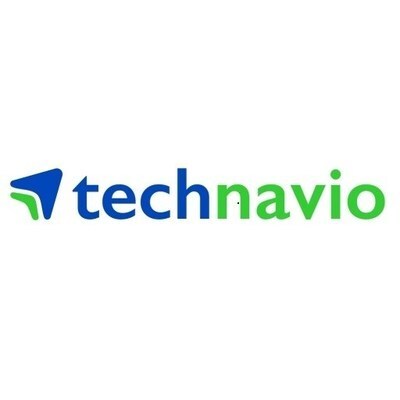NEW YORK, Jan. 24, 2025 /PRNewswire/ — Report on how AI is driving market transformation – The global artificial intelligence (AI) in games market size is estimated to grow by USD 27.47 billion from 2025-2029, according to Technavio. The market is estimated to grow at a CAGR of 42.3% during the forecast period. Growing adoption of AR and VR games is driving market growth, with a trend towards increasing emergence of cloud gaming. However, network latency in between games poses a challenge. Key market players include Capcom Co. Ltd., Charisma Entertainment Ltd., COGNOSPHERE PTE. LTD., Electronic Arts Inc., Gameloft SE, Google LLC, Konami Group Corp., Latitude, Microsoft Corp., NetEase Inc., Nintendo Co., Ltd., NVIDIA Corp., PrometheanAI Inc., Side Effects Software Inc., Sony Group Corp., Take Two Interactive Software Inc., Tencent Holdings Ltd., Theai Inc., Ubisoft Entertainment SA, and Unity Technologies Inc..
Key insights into market evolution with AI-powered analysis. Explore trends, segmentation, and growth drivers- View Free Sample PDF
|
Artificial Intelligence (AI) In Games Market Scope |
|
|
Report Coverage |
Details |
|
Base year |
2024 |
|
Historic period |
2019 – 2023 |
|
Forecast period |
2025-2029 |
|
Growth momentum & CAGR |
Accelerate at a CAGR of 42.3% |
|
Market growth 2025-2029 |
USD 27474 million |
|
Market structure |
Fragmented |
|
YoY growth 2022-2023 (%) |
32.9 |
|
Regional analysis |
North America, APAC, Europe, South America, and Middle East and Africa |
|
Performing market contribution |
North America at 40% |
|
Key countries |
US, China, Canada, Japan, South Korea, UK, Germany, Brazil, France, and Italy |
|
Key companies profiled |
Capcom Co. Ltd., Charisma Entertainment Ltd., COGNOSPHERE PTE. LTD., Electronic Arts Inc., Gameloft SE, Google LLC, Konami Group Corp., Latitude, Microsoft Corp., NetEase Inc., Nintendo Co., Ltd., NVIDIA Corp., PrometheanAI Inc., Side Effects Software Inc., Sony Group Corp., Take Two Interactive Software Inc., Tencent Holdings Ltd., Theai Inc., Ubisoft Entertainment SA, and Unity Technologies Inc. |
Market Driver
Artificial Intelligence (AI) is revolutionizing the games market with trends like AI-generated content, Virtual Reality (VR) and Augmented Reality (AR). AI algorithms, machine learning, and neural networks bring 3D representations to life on platforms like Microsoft HoloLens 2, using sensors for experiences. Games like Cyberpunk 2077, Battlefield V, and Red Dead Redemption 2 use AI technologies for realistic physics simulations, player behavior, and environmental interaction. Real-time AI processing, multiplayer gaming, and matchmaking require significant processing power, with GPUs and CPUs driving advancements. Market growth factors include AI-driven animation techniques, 5G network, cloud gaming, and edge computing. Expertise in AI, ML models, and data analysis enable prediction and anti-cheat systems in mobile games. Market leaders like AI Dungeon, Voyage platform, Pixel This, Things, Loom, and Mediaeval Problems are shaping the future of gaming with AI-enabled platforms, deep learning, and real-time AI processing.
Cloud gaming, which allows access to remote server-based games through Internet-connected devices, is gaining popularity due to the rise of social media and mobile gaming. Users can enjoy streaming video games from the web via cloud gaming services, available for free or through paid subscriptions. This technology eliminates the need for new hardware or complicated setups, such as game discs, installations, or patches. Grid computing facilitates content delivery to gamers via wired or wireless broadband connections. Cloud gaming’s cost-effective pricing structure attracts non-core gamers, expanding its reach beyond traditional console gaming.
Request Sample of our comprehensive report now to stay ahead in the AI-driven market evolution!
Market Challenges
- The AI in Games market is experiencing significant growth, with advancements in AI-generated content, virtual reality (VR), and augmented reality (AR). Challenges include integrating AI algorithms for 3D representations in VR and AR, as well as real-time AI processing in 3D games. Microsoft HoloLens 2 and sensors are key technologies driving this trend. AI technologies, including machine learning and neural networks, are used for image upscaling, player behavior analysis, and environmental interaction. Games like Cyberpunk 2077, Battlefield V, and Red Dead Redemption 2 utilize AI-driven animation techniques and realistic physics simulations. Network latency is a challenge for multiplayer gaming, requiring AI-enabled platforms and deep learning ML models for prediction. Market growth factors include expertise in AI, 5G network, cloud gaming, and edge computing. Companies like AI Dungeon, Voyage platform, Pixel This, Things, Loom, and Mediaeval Problems are leading the way in AI in Games. Processing power, real-time AI processing, and anti-cheat systems are crucial for mobile games. AI-driven animation techniques and prediction models require significant GPU and CPU power. Realistic physics simulations and player behavior analysis require high processing power and real-time AI processing. Market growth is expected to continue as AI technologies become more accessible and affordable.
- The global AI market in games faces a significant challenge due to network latency. This delay between a player’s action and the game server’s response can negatively impact gameplay, particularly in online multiplayer games. Latency is influenced by various factors, including internet connection quality, player-server distance, network infrastructure, player numbers, and server load. These elements contribute to the overall network latency, which can significantly affect the user experience. Minimizing latency is crucial for providing an optimal gaming experience and maintaining player satisfaction.
Discover how AI is revolutionizing market trends- Get your access now!
Segment Overview
This artificial intelligence (ai) in games market report extensively covers market segmentation by
- Type
- 1.1 AI enabled platforms
- 1.2 AI enabled games
- Technology
- 2.1 Machine learning
- 2.2 Natural language processing
- 2.3 Computer vision
- 2.4 Robotics
- Geography
- 3.1 North America
- 3.2 APAC
- 3.3 Europe
- 3.4 South America
- 3.5 Middle East and Africa
- Game
- AI Type
1.1 AI enabled platforms- Artificial Intelligence (AI) platforms are essential collections of tools that facilitate the creation, testing, implementation, and maintenance of deep learning and Machine Learning (ML) models in the gaming industry. AI technologies enable machines to execute tasks beyond human capabilities, such as data analysis, prediction, and action-taking, more efficiently and accurately. Developers leverage AI platforms to create advanced games, build environments, characters, and plots more rapidly. Additionally, AI’s ability to analyze player behavior and data provides valuable insights into player preferences, leading to more personalized and engaging experiences. Key players in this sector, like Microsoft and Google, are driving the industry’s transformation with their advanced AI-driven platforms and tools. Furthermore, AI is revolutionizing game graphics through AI-powered ray tracing and graphics, creating lifelike scenes previously unachievable. Real-time interactions between human gamers and AI-controlled characters are also made possible by AI platforms. The increasing adoption of AI platforms in gaming is expected to fuel the growth of the AI platforms market in the forecast period.
Download a Sample of our comprehensive report today to discover how AI-driven innovations are reshaping competitive dynamics
Research Analysis
The AI in Games market is revolutionizing the gaming industry by introducing advanced AI-generated content, enhancing the experience in 3D games. AI algorithms, machine learning, and neural networks are at the core of this innovation, powering virtual reality (VR) and augmented reality (AR) experiences on platforms like Microsoft HoloLens 2. Sensors and AI technologies enable more realistic interactions, while AI-enabled platforms predict player behavior and optimize gameplay. Ray tracing and image upscaling further improve visual quality. Games like Cyberpunk 2077, Battlefield V, and Red Dead Redemption 2 utilize AI middleware systems such as Euphoria for lifelike character behaviors. Network latency is being addressed with advanced AI models, and GPUs and CPUs are being optimized to handle the computational demands of AI gaming. Data analysis and prediction are essential components of this evolution, ensuring personalized and engaging gaming experiences.
Market Research Overview
The Artificial Intelligence (AI) in Games market is experiencing rapid growth as developers integrate advanced AI algorithms, machine learning, and neural networks to create more and interactive gaming experiences. AI-generated content, such as 3D representations and realistic physics simulations, is revolutionizing 3D games across Virtual Reality (VR) and Augmented Reality (AR) platforms. Microsoft HoloLens 2 and other sensors are enabling more advanced AI technologies, including ray tracing and deep learning, to enhance the gaming experience. Games like Cyberpunk 2077, Battlefield V, and Red Dead Redemption 2 are utilizing AI to improve player behavior, environmental interaction, and prediction. The market is driven by the increasing processing power of GPUs and CPUs, real-time AI processing, and the growth of AI-enabled platforms. Multiplayer gaming, matchmaking, and anti-cheat systems are also benefiting from AI, as is the emergence of cloud gaming, edge computing, and 5G networks. Expertise in AI, ML models, and data analysis is becoming essential for game development, leading to the rise of AI Dungeon, Voyage platform, Pixel This, Things, Loom, and Mediaeval Problems, among others. Market growth factors include the increasing popularity of AI-driven animation techniques, network latency reduction, and the integration of AI in mobile games.
Table of Contents:
1 Executive Summary
2 Market Landscape
3 Market Sizing
4 Historic Market Size
5 Five Forces Analysis
6 Market Segmentation
- Type
- AI Enabled Platforms
- AI Enabled Games
- Technology
- Machine Learning
- Natural Language Processing
- Computer Vision
- Robotics
- Geography
- North America
- APAC
- Europe
- South America
- Middle East And Africa
- Game
- AI Type
7 Customer Landscape
8 Geographic Landscape
9 Drivers, Challenges, and Trends
10 Company Landscape
11 Company Analysis
12 Appendix
About Technavio
Technavio is a leading global technology research and advisory company. Their research and analysis focuses on emerging market trends and provides actionable insights to help businesses identify market opportunities and develop effective strategies to optimize their market positions.
With over 500 specialized analysts, Technavio’s report library consists of more than 17,000 reports and counting, covering 800 technologies, spanning across 50 countries. Their client base consists of enterprises of all sizes, including more than 100 Fortune 500 companies. This growing client base relies on Technavio’s comprehensive coverage, extensive research, and actionable market insights to identify opportunities in existing and potential markets and assess their competitive positions within changing market scenarios.
Contacts
Technavio Research
Jesse Maida
Media & Marketing Executive
US: +1 844 364 1100
UK: +44 203 893 3200
Email: [email protected]
Website: www.technavio.com/
![]() View original content to download multimedia:https://www.prnewswire.com/news-releases/artificial-intelligence-ai-in-games-market-to-grow-by-usd-27-47-billion-2025-2029-rising-adoption-of-ar-and-vr-games-fuels-growth-report-on-ai-evolution—technavio-302358998.html
View original content to download multimedia:https://www.prnewswire.com/news-releases/artificial-intelligence-ai-in-games-market-to-grow-by-usd-27-47-billion-2025-2029-rising-adoption-of-ar-and-vr-games-fuels-growth-report-on-ai-evolution—technavio-302358998.html
SOURCE Technavio

Featured Image: deposit photo @ georgejmclittle

















